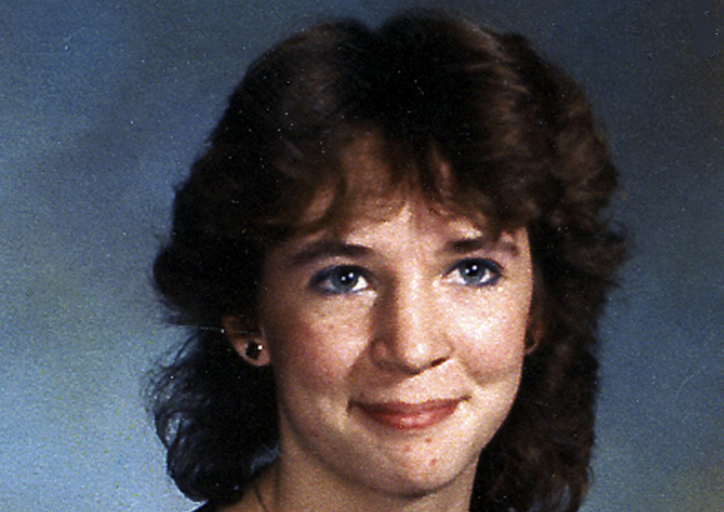DNA results in Candace Derksen case ‘fatally flawed:’ geneticist
Advertisement
Read this article for free:
or
Already have an account? Log in here »
To continue reading, please subscribe:
Monthly Digital Subscription
$0 for the first 4 weeks*
- Enjoy unlimited reading on winnipegfreepress.com
- Read the E-Edition, our digital replica newspaper
- Access News Break, our award-winning app
- Play interactive puzzles
*No charge for 4 weeks then price increases to the regular rate of $19.00 plus GST every four weeks. Offer available to new and qualified returning subscribers only. Cancel any time.
Monthly Digital Subscription
$4.75/week*
- Enjoy unlimited reading on winnipegfreepress.com
- Read the E-Edition, our digital replica newspaper
- Access News Break, our award-winning app
- Play interactive puzzles
*Billed as $19 plus GST every four weeks. Cancel any time.
To continue reading, please subscribe:
Add Free Press access to your Brandon Sun subscription for only an additional
$1 for the first 4 weeks*
*Your next subscription payment will increase by $1.00 and you will be charged $16.99 plus GST for four weeks. After four weeks, your payment will increase to $23.99 plus GST every four weeks.
Read unlimited articles for free today:
or
Already have an account? Log in here »
Hey there, time traveller!
This article was published 13/02/2017 (3230 days ago), so information in it may no longer be current.
Two internationally recognized experts in DNA analysis have slammed lab work that linked an accused killer to the murder of a 13-year-old girl as inaccurate, saying if the test results had been interpreted properly, Mark Edward Grant could have been excluded as a suspect.
Grant, now 53, is on trial for second-degree murder in the death of Candace Derksen, who went missing on her way home from school in November 1984 and was found tied up and frozen to death in a lumber-yard shed nearly two months later.
But the DNA evidence that connected him to the twine used to bind Candace’s wrists and ankles has been repeatedly criticized by experts hired by Grant’s defence team to review lab work from Thunder Bay-based Molecular World.

“I would consider the results and the file fatally flawed,” Regina-born geneticist Frederick Bieber said Monday, calling the case “a textbook example of trying to fit the data to a hypothesis.”
Bieber, a Harvard University professor who has done DNA analysis for several U.S. government agencies — including the FBI — and serves on the advisory board overseeing the RCMP’s national DNA data bank, took the stand as a defence witness Monday. He suggested during a full day of testimony the lab that analyzed Grant’s DNA purposefully tried to match him up to evidence found at the crime scene by ignoring data that would have excluded him.
Bieber said in his interpretation of the data from DNA tests conducted on samples of Grant’s DNA and DNA extracted from the twine used to bind Candace, Grant would have been excluded. Molecular World ran three different tests to try to develop a DNA profile from the twine, the trial has heard. The first two tests yielded unuseable results. The third test showed a mixed DNA profile with DNA from at least two men, and the majority contributor was determined to be Grant.
But in coming to that conclusion, Bieber said Monday, Molecular World ignored three different DNA markers that did not belong to Grant “without any reasonable explanation or justification for doing so.” Bieber said he didn’t have confidence in the lab’s work, and pointed out it was “troubling” that the lab never tested Candace’s DNA to separate her from a potential suspect’s DNA. He also expressed concern the lab wasn’t able to get a “clean” DNA profile from Grant’s blood, obtained from a pair of pants police seized in a separate case where Grant was the victim. That means Grant’s DNA sample the lab used for comparison was “a mess,” Bieber said.
Bieber is set to be questioned by Crown prosecutors under cross-examination Tuesday. His evidence is part of a voir dire, meaning the judge will have to decide whether his evidence will be admissible.
His review of the lab work in this case raised so many concerns that Bieber said he would have called for an audit of all previous cases handled by Molecular World, he said. The small, privately run lab opened in 2003 and was later acquired by a larger company specializing in paternity tests. In 2007, when the Winnipeg Police Service’s cold-case unit hoped new DNA technology would solve Derksen’s homicide, Molecular World was the only accredited lab in Canada that offered all three types of DNA testing available at the time, including mitochondrial DNA testing, which is often used for ancient or degraded DNA.
Geneticist Bruce Budowle, a professor at the University of North Texas Health Science Center and former senior scientist for the FBI, raised much of the same criticisms of Molecular World when he testified for the defence last week, calling parts of the lab analysis “scientifically corrupt” and inaccurate. Molecular World lab director Amarjit Chahal offered explanations during his testimony that the two defence experts said didn’t make scientific sense. Chahal admitted during a lengthy cross-examination that if his interpretation of the DNA results was wrong, Grant should be excluded as a suspect.
Grant was previously convicted in Candace’s death, but the conviction was overturned on an appeal that argued the jury should have been allowed to hear evidence that could have pointed to a different suspect. The retrial has focused heavily on DNA evidence, which was an integral part of police’s decision to arrest Grant, court has heard.
katie.may@freepress.mb.ca
Twitter: @thatkatiemay

Katie May is a multimedia producer for the Free Press.
Our newsroom depends on a growing audience of readers to power our journalism. If you are not a paid reader, please consider becoming a subscriber.
Our newsroom depends on its audience of readers to power our journalism. Thank you for your support.



